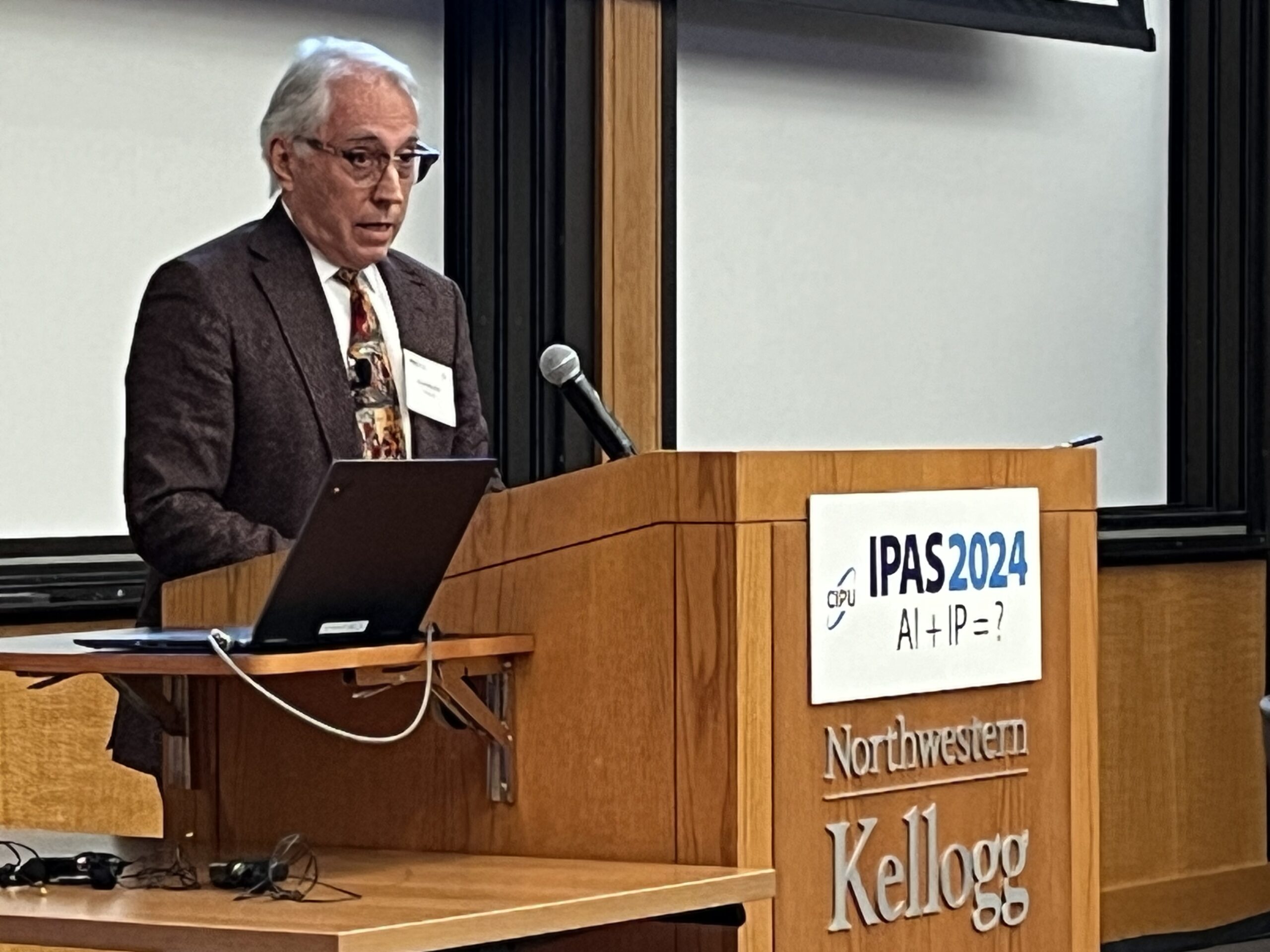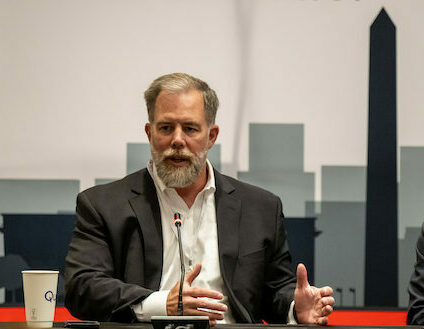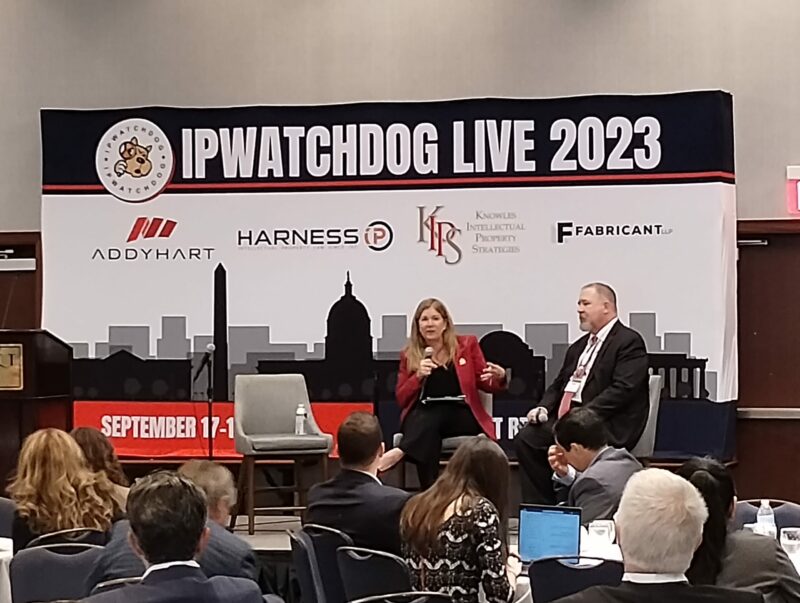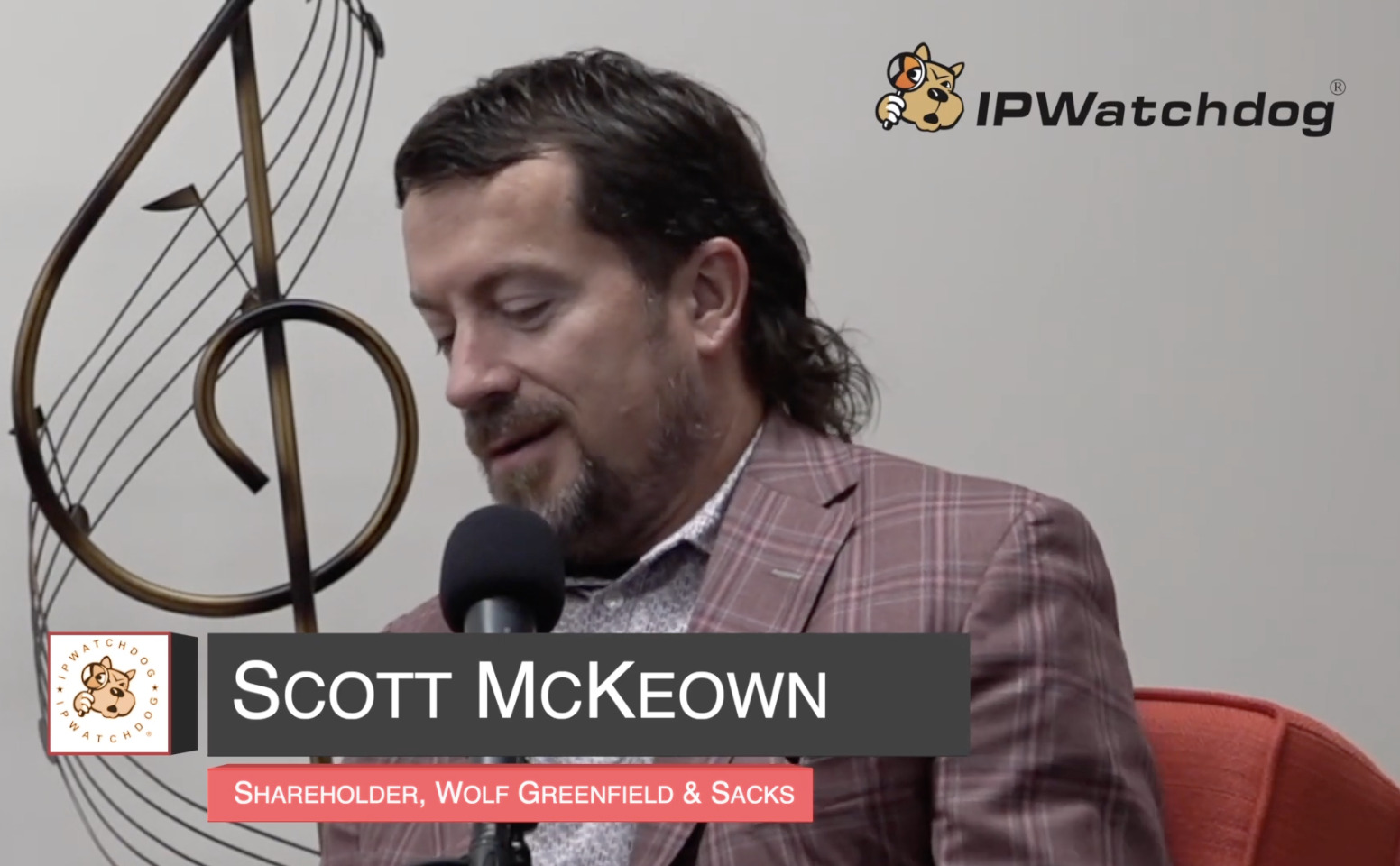
Erik Iverson
Erik Iverson is is Associate General Counsel with the Bill & Melinda Gates Foundation, working exclusively with Foundation’s Global Health initiate. He will be the keynote speaker at the BIO IP Counsels Committee Conference, which will be held in Seattle, Washington from April 13-15, 2011. As a prelude to his presentation at BIO Mr. Iverson agreed to go on the record with me. Part 1 of my interview with Mr. Iverson was published last week, and what appears below is the final segment of our discussion. We pick up with discussion of crowd sourcing techniques to enhance innovation and the humanitarian work of the Gates Foundation, as well as the humanitarian work of all those engaged in the life sciences, which Iverson says is “all about helping people and saving lives.”
Without further ado, part 2 of my interview with Erik Iverson.
QUINN: Yes and I certainly didn’t mean to mention open source in any kind of a pejorative way. And some times honestly I have referred to open source in pejorative terms because I think, in the software area particularly, it is not a very well defined business model. But one of the things I think open source and crowd sourcing perhaps and the combination of really tapping into a collective provides you, moving forward is the ability to get innovation up to a critical foundational level that can be used. And then have that foundation maybe in the public domain. And now that you’ve built it up through collaborative efforts, “You guys can run and do what you want with this as long as you core definable aspect maybe is available for the public.
IVERSON: Yes, I’ll give you an example of where we are doing that. And I must say, in my opinion that there is nothing pejorative about open source, it just depends upon how it is used and under what circumstance. As far as a crowd source goes, and I do like that term, one example of that is our CAVD, which is a collaboration for aids vaccine discovery and we launched that about 5 years ago. And what it consists of is originally 16 sets of grantees that have a large set of collaborators each. And the whole task of the CAVD is to further the development of HIV vaccine. One side doing T cell vaccines, the other doing antibody vaccines. But what we did is we funded centralized laboratories to conduct assays And then a central repository of tissue samples where everyone would deposit their samples and also be able to receive them.
[Bio-Pharma]
And then we have a centralized analytical center. The idea being that everyone would be funded to conduct their own individual research activity but there was a collective that overlie everybody that we put into place called the data and material sharing agreement, where there was a common CDA that everybody used so there was some freedom to share information more readily among the collaborations. There was a common material transfer agreement and we have made that electronic to facilitate the sharing of materials, reagents and tissue samples and otherwise. But most importantly is a set of data and material sharing principles, where everybody signed on to a common set of sharing of information and data coming out of their projects in a very expedited manner. Publications and intellectual property were all taken into account because they were of course high on the list of priorities for everybody.
But at the end of the day, after making those grants, we got over 100 organizations to sign up for this data and material sharing principles. And that was just in the first year and since then, we are closer to 150 organizations, even more than that who have agreed to a common set of data and material sharing principles. So that’s what we’ve done in the HIV vaccine sector. It has truly changed the paradigm of how science is done.
QUINN: Yes and that to me is really the way that some of these difficult scientific problems need to be addressed moving forward and maybe not only the really difficult ones but I wonder, and if you don’t want to comment on this that’s fine because it gets out of the core of what we’re talking about, but I wonder looking at what happened to Rambus at the standards setting and the Rambus supporters will say that they were duped into sharing their technologies and then there’s been this litigation for years and years. And there are yet others who will say that Rambus hid things and what not. I don’t necessarily want to re-litigate or discuss who was right and who was wrong there, and that was an enormous, enormous mess. But I wonder if there really is any way that you could engage in a standard setting endeavor in this day and age where with so many of these technologies whether its biotech or pharma or whether it is silicon valley gadget tech, there are so many hundreds of billions of dollars on the line. So it seems to me that this kind of collaborative approach to science, to innovation, to collecting the core is really a good process to get you at lead to a certain stage any thoughts on that?
IVERSON: I think one of the great assets in the interest of global health is the lesson learned. And when it comes to all of the stakeholders in global health, there are a lot of smart people, a wide array of experiences, including the ones that you described. And bringing people together on a project by project basis to be thoughtful is to what rational approaches may be and have everyone agree to them in advance and not make them so firm that it’s rigid through the process but to establish an expectation and a basic set of commitments that will evolve over time with guiding principles. That’s what we believe in and we do constantly look back at all these lessons learned that people have had in all sorts of circumstances and I think it’s evolving very, very quickly and positively.
QUINN: I know we’ve talked about this before and maybe we should have even started with this, but it strikes me that at its core, what the Gates Foundation is all about is a humanitarian endeavor. Is that a fair way to really categorize what’s going on?
IVERSON: Yes, but isn’t that the nature of the life science industry? Which is its all about helping people and saving lives.
QUINN: Yes and I agree with you, but when you get to the next level, you get to some of the folks that are overly idealistic and I don’t think you can have it be just about humanitarian endeavors because then you take away from what I refer to as the “greed gene.” Greed is human. Its what motivates a lot of very successful people so there’s a double-edged sword where you walk a fine line in a way so you are properly incentivizing the real go-getters? The one’s that are probably, frankly, more likely to come up with earth shattering innovations while still keeping the humanitarian goal in mind.
IVERSON: Right, and our objective is to balance that. That is greed is a loaded term and one might say that the need for profit is inappropriate in the global health context – we don’t see it that way. Profit creates a sustainable solution; profit incentivizes people to get involved in areas where they might not otherwise get involved. It helps to fund further research. And on the humanitarian side, absolutely. I think, as I said in the life science community is all about helping people and saving lives and what’s unique about the global health effort is that we are taking all of these different incentives, whether it is humanitarian or profit driven, and trying to figure out how to balance them to push the development of products that well, very few people historically have put much effort into and becoming smarter as to how we go about doing this.
We all need to get smarter and we all need to push ourselves and quite frankly a lot of us could do a lot more work on these fronts. We’re collectively and being cognizant of what we need and want to get out of it.
QUINN: I really hope this comes out in the transcript but I can hear your passion when you talk. It seems as if you’ve found a home where you really enjoy what it is you’re doing day to day. Could you maybe speak about that a little bit?
F: Yes, I do passionately believe in what we’re trying to achieve as to the vast majority of stakeholders in this sector. To get a lot of the companies to become actively involved in the development of these types products, the passion builds over time. And quite frankly I take huge pride in being part of the Gates foundation and I shudder to think of what happens if this global health effort fails. Because never in the history of times have we had these amount of resources brought to bear on these issue or the momentum on the various sectors. At times it’s a struggle. We are at a time where the economy is not so hot and people are reevaluating where money should be put and I really hope people take a very careful look at where their resources are put to bear, whether its governments or companies and to think about the extensive benefits that would come out of addressing these issues. I am truly passionate about it.
QUINN: What would you say to people who I would call overly idealistic and would like all of this to happen purely as a result of humanitarian effort and get a little bit upset that there is a profit motive involved. And they get upset that there is IP involved. I suspect those people are equally passionate and they want to do the right thing and they want to do really good things to help people but the funding really is important in order to make all of this happen.
IVERSON: Right and without the funding there are no products, there’s no development, there’s no supply, there’s no distribution. And whether that funding comes from the companies providing resources themselves, whether it’s governments who have funding available because of tax revenues or otherwise, the funding is absolutely necessary, both as an incentive for development and for manufacturing and procurement and distribution. And in the absence of a sustainable solution we just don’t believe that a purely humanitarian approach will achieve the objectives in the long run.
QUINN: Or at least maximize the out comes I would say, right?
IVERSON: I think that’s right. What we do strive to do here at the foundation is to listen to these voices though and take into consideration every body’s opinions because they are of great value and then it’s a matter of applying them in any given circumstance and figuring out what makes most sense for a given product at a given stage of development for a given market. That’s where the fun occurs and it really is a complex dance to dance.
QUINN: Where do you see the Gates Foundation a year from now or 5 years from now or 10 years from now or some point in time in the future and the related question probably is how are you going to know if what you set off to do has been a success? What if any metrics are you keeping an eye on?
IVERSON: For purposes of this interview, I can’t really say where we’re going to be in a year or 5 years other than we will continue to innovate and support innovation and become very specific in our mission. Certainly Bill and Melinda, the Co-Chairs of this organization, Jeff Raikes the CEO have a personal involvement and demand clarity from the teams for our strategies and our strategies will continue to grow and evolve and be honed. Certainly our number 1 priority at the moment is polio and the eradication of polio. Anything comes up about polio we make sure without doubt that it is of highest priority and then vaccines of general are of great priority to this organization.
On your second question, the accountability for the products and the success metrics is a growing area here at the foundation as people begin to identify what those success metrics are going to be. At the end of the day though, it is the number of lives saved and health solutions available to people most in need in developing countries and then it’s a matter of finding how you measure that.
QUINN: What keeps you guys motivated? Because it would seem to me that with the daunting task in front of you and with so many people needing so much help, there’s got to be some feel good moments that you can collectively celebrate.
IVERSON: That’s an excellent point.
QUINN: Because if all you’re focusing on is lives saved, it almost seems, by the very nature of that, that it’s a negative or at least one step away from being too negative because “We didn’t save enough people.” And that certainly is a great motivation, don’t get me wrong, because it seems to me that what you and others at the Gates foundation are setting off to do is just tremendously positive but has the potential to be a real personal weight on a day after day basis.
IVERSON: Yes, and I’ll tell you Gene, where the real feel good moments are. When you work hard tackling one of these insanely hard complex issues that is say the development of a new TB therapeutic that’s not going to take somebody multiple pills every day for several months. And rallying a set of players, a set of stake holders many of whom may not have otherwise been involved in global health all of a sudden staking a claim in their involvement in this activity and watching those relationships grow. Before you know it there are other people who would otherwise have never thought about global health now are suddenly passionate about it and resources brought to bear from these multiple sectors. When you step back and watch this occur, it really is truly gratifying and you begin to recognize that not only is it for humanitarian purposes, but the possibility of building markets and building new companies and building new opportunities in market places and countries and areas around the world that hold great promise. Not just economically but in saving lives. And watching people all of a sudden having those “Ah Ha” moments, if that might be the case, it is truly gratifying.
QUINN: What strikes me is those “Ah Ha” moments where you get key players involved you know that even if what they are working on at the moment does not bear fruit, you’ve brought very talented together with their companies and their resources, it just strikes me as a very positive outcome for basic science, for innovation getting out into the marketplace and ultimately for benefiting global health.
IVERSON: Yes, And not just the companies but it is interesting and fun to watch and it’s frustrating without doubt, but it is very interesting to watch the companies to build relationships with the administrators of health and with various countries, with the biotechs figuring out how do they position themselves for acquisition for example or to parlay their products into something that multinational pharmas may be interested in and their relationships with the multilateral procurement agencies and the non profit sector and the desire to have more transparency in how the academics conducts research. It’s a field of opportunity that is becoming just ripe with really interesting projects and relationships.
QUINN: OK Well thank you very much for taking the time to chat with me about what you are doing at the Gates foundation. I look forward to hearing you talk at the BIO conference in April and hopefully we will have a chance in the future to circle back and see how things are playing out for you all.
IVERSON: And thank you for the opportunity to do the interview. I very much look forward to speaking at BIO and quite frankly, I am very much looking forward to receiving the feedback from the attendees and continuing a dialog with a very important audience.

![[IPWatchdog Logo]](https://ipwatchdog.com/wp-content/themes/IPWatchdog%20-%202023/assets/images/temp/logo-small@2x.png)

![[Advertisement]](https://ipwatchdog.com/wp-content/uploads/2024/04/Patent-Litigation-Masters-2024-sidebar-early-bird-ends-Apr-21-last-chance-700x500-1.jpg)

![[Advertisement]](https://ipwatchdog.com/wp-content/uploads/2021/12/WEBINAR-336-x-280-px.png)
![[Advertisement]](https://ipwatchdog.com/wp-content/uploads/2021/12/2021-Patent-Practice-on-Demand-recorded-Feb-2021-336-x-280.jpg)
![[Advertisement]](https://ipwatchdog.com/wp-content/uploads/2021/12/Ad-4-The-Invent-Patent-System™.png)






Join the Discussion
5 comments so far.
Gene Quinn
March 7, 2011 08:47 pmRegata-
Point taken, and thanks for the nod as a “high profile legal blog.”
I brought up Rambus only because I wonder what the future of standard setting is post Rambus turmoil. As I have written previously, it seems as if Rambus was the victim and with that ordeal who is going to want to sit on a standard setting body in the future? That being the case open source innovation and crowd source solutions to innovation to achieve a certain threshold seem more likely to bear fruit.
Cheers.
-Gene
Regata De Blank
March 7, 2011 06:54 pmGene, thanks for your reply.
“There are those who will always believe what they want to believe” – you are right when you say this statement is “not incorrect” but if one considers the highly successful legal effort Rambus has gone through to disprove these wishful thinking, (now proven false) notions, are they even worth mentioning (in a serious high profile legal blog)?
I made my previous comments just to set the record straight re Rambus’ current legal standing.
Cheers,
Regata De Blank
Gene Quinn
March 7, 2011 05:23 pmRegata-
I understand what you are saying about Rambus, but what I said was not incorrect. There are those who will always believe what they want to believe.
Having said this, I don’t want the comments to this interview to become a forum for pro-Rambus or anti-Rambus discussion. The comment you cite was made by me in passing and not at all central to the discussion. You and others are, however, invited to continue any Rambus discussion at:
https://ipwatchdog.com/2009/12/09/rambus-patent-related-antitrust-saga-appears-to-be-over/id=7619/
-Gene
Regata De Blank
March 7, 2011 04:18 pm“…And there are yet others who will say that Rambus hid things and what not”
Gene, the Jury is back in regarding Rambus’ alleged misconduct when they attended JEDEC meetings and the Jury (in Judge Whyte’s northern district federal court) has ruled; Rambus is TOTALLY INNOCENT of ANY and ALL WRONG DOING while they attended JEDEC meetings, Rambus did not “hide” anything and suggesting they might have, is obfuscation of the truth.
After all was said and done in court(s) the mere mention of those “others” (probably DRAM cartel sycophants) that still cling to the (now proven false) notion that Rambus might have “hid things and what not…” raises an artificial specter of a phantom controversy which does not exist. Again, Rambus clean hands while they participated in JEDEC meetings is now (after the SC denied cert) indisputable Law of The Land.
Rambus is a victim that was almost killed and many criminals will be veeeerrrry sorry they have survived.
Next headline to look for from the courts… “NO SPOLIATION!!!”
Kim
March 6, 2011 06:22 pmFriedman actually researched the pro’s and con’s of open source and crowd source in his “World is Flat” book, and did a good job of presenting it. I for one believe it is one of the greatest concepts of all time. While Gates certainly has been accused at times of limiting competition and protecting info, I for one am a fan of how he has used open source collaboration to further a great many causes that benefit humanity. Good interview and thanks.